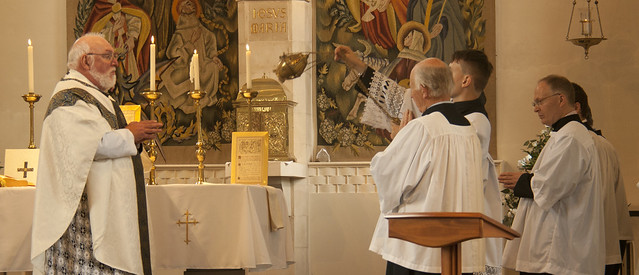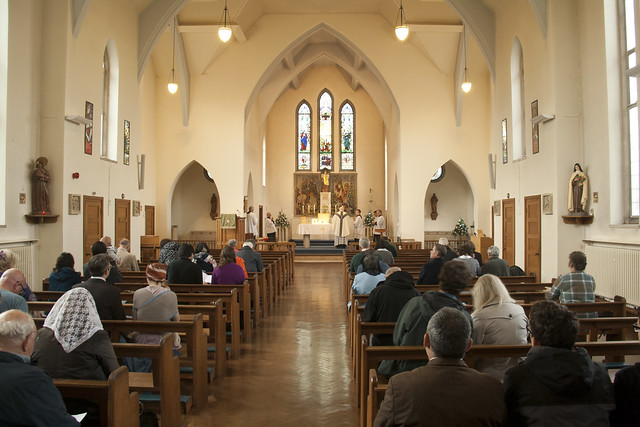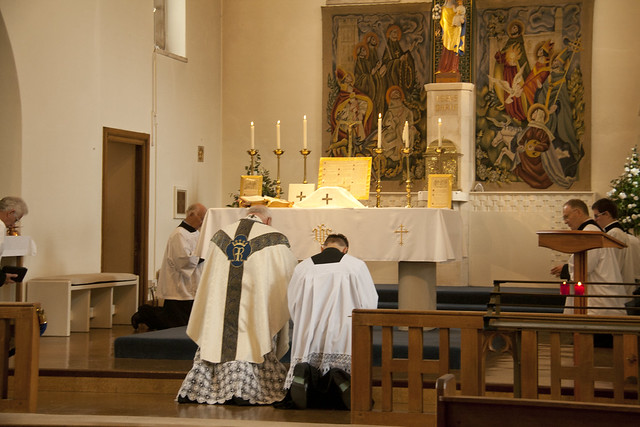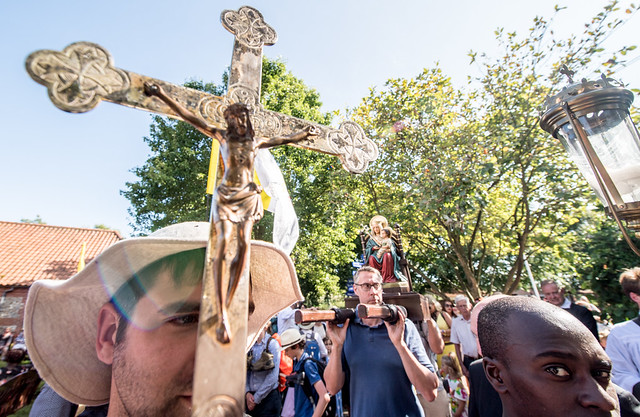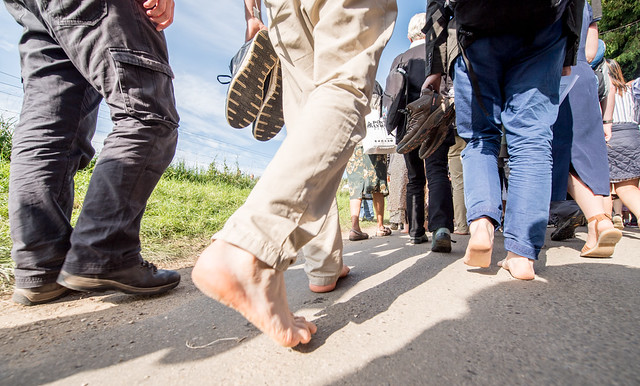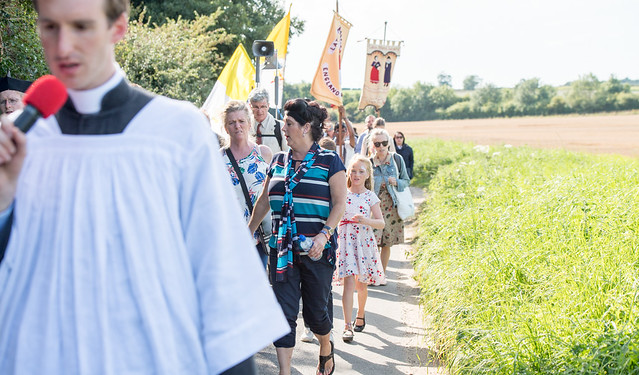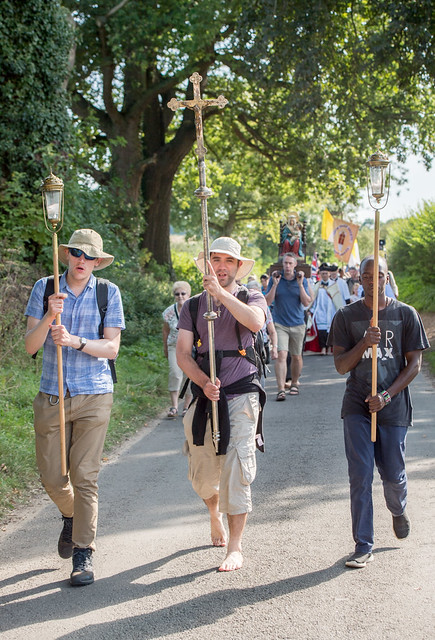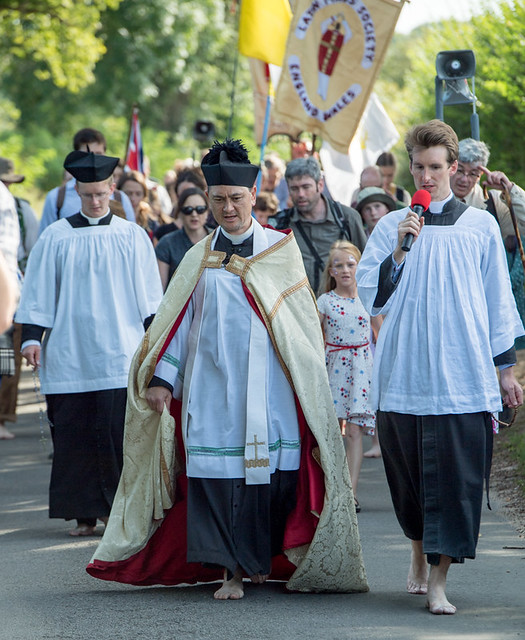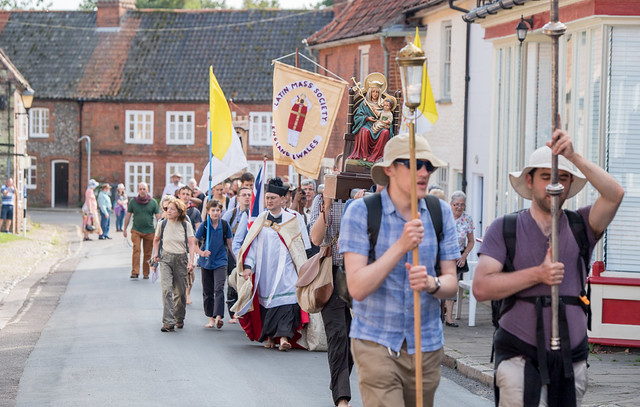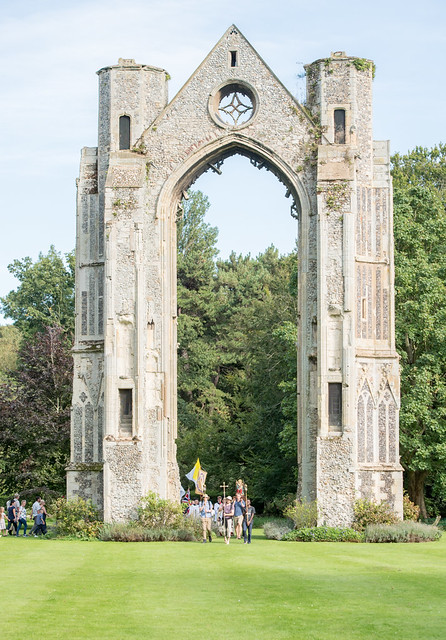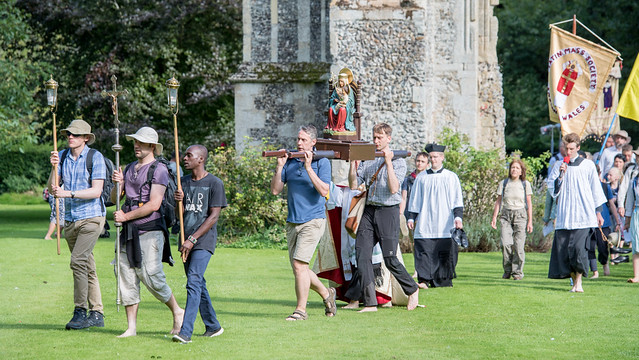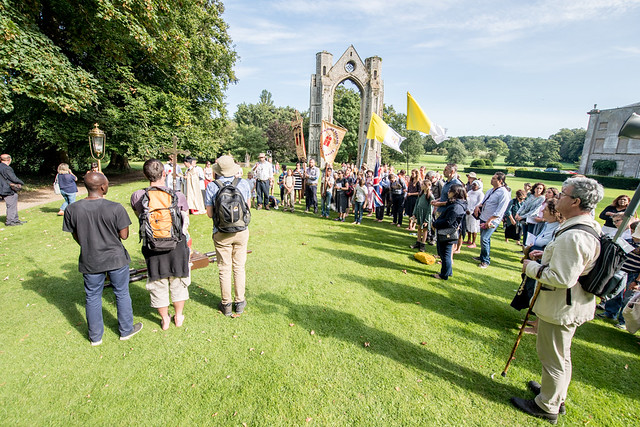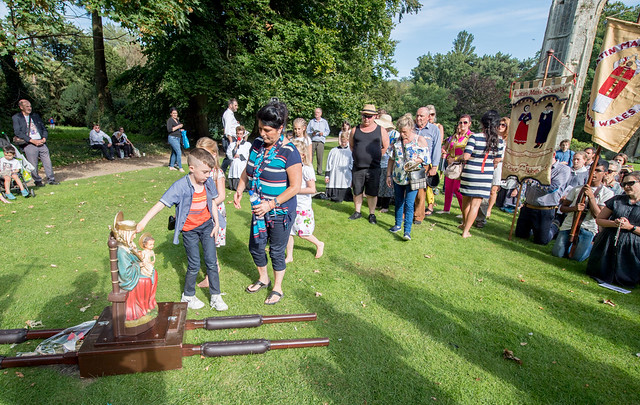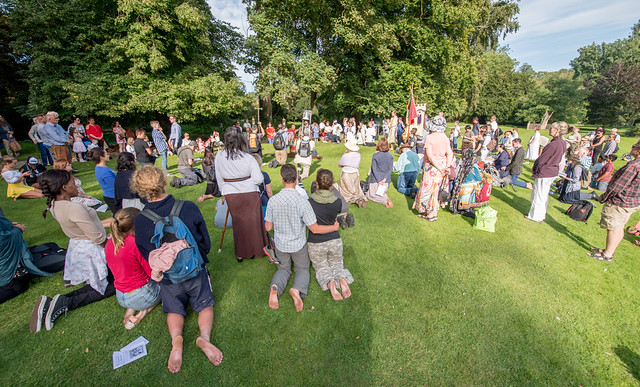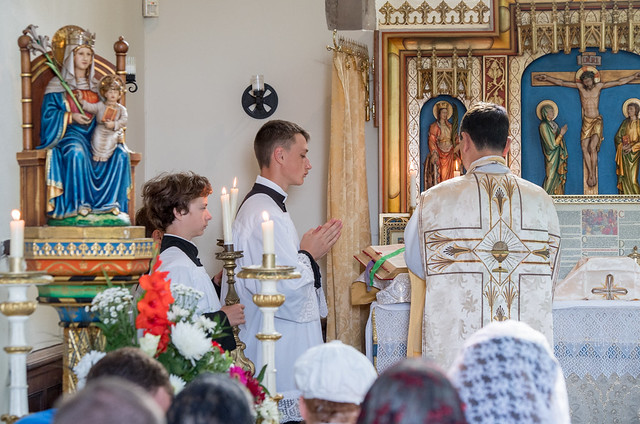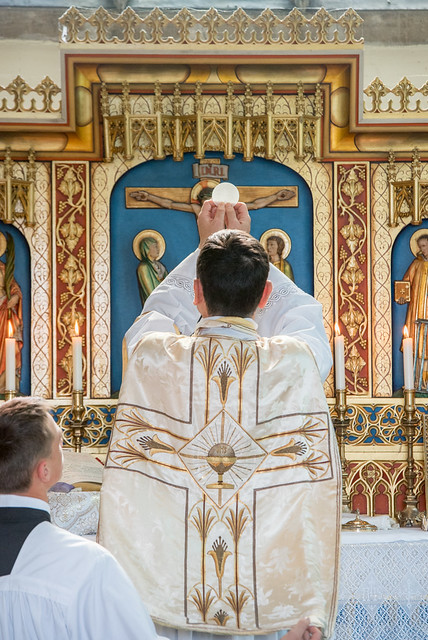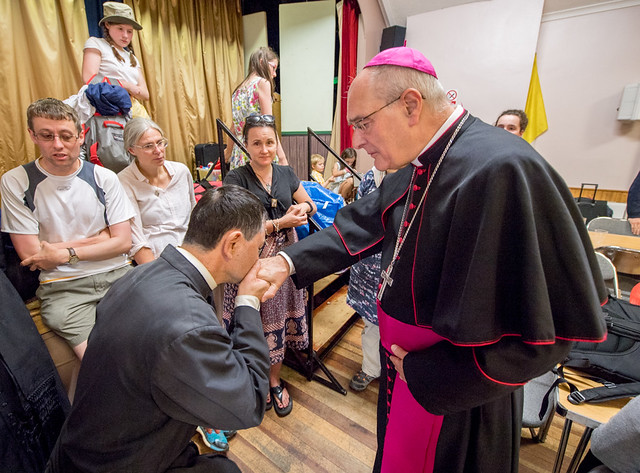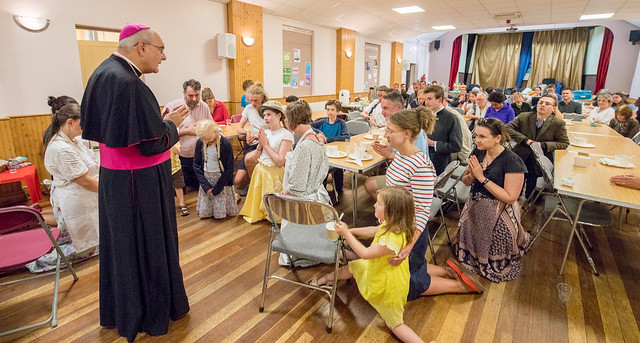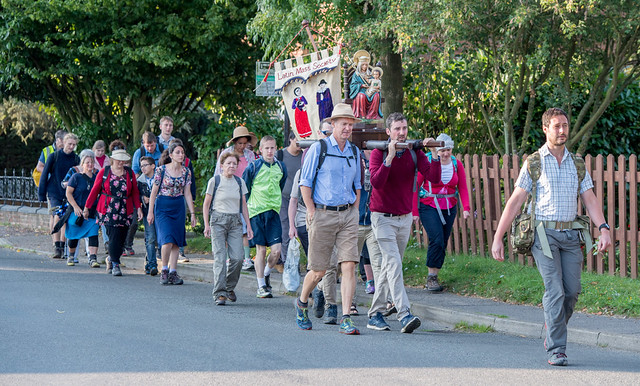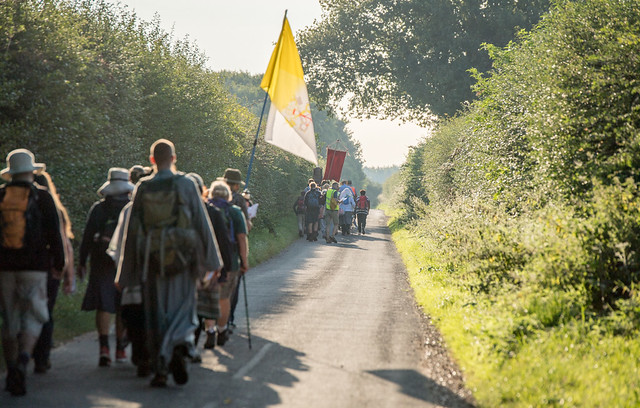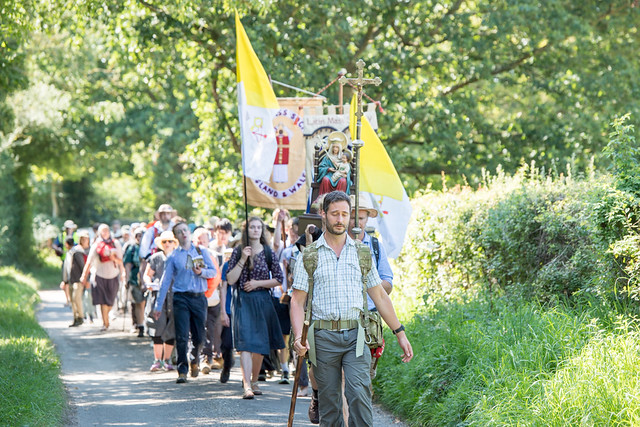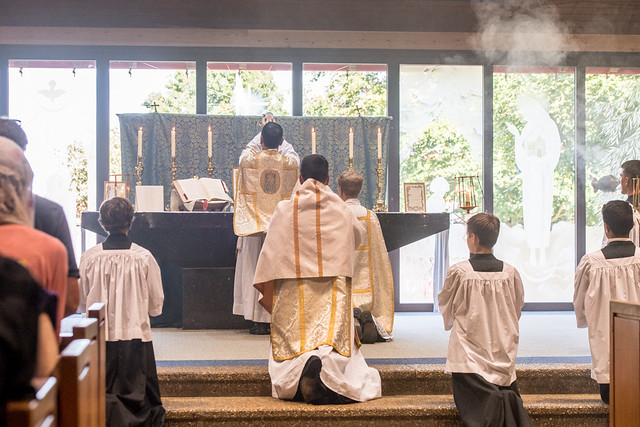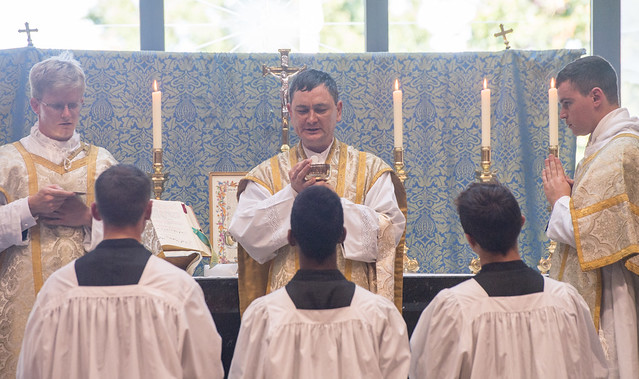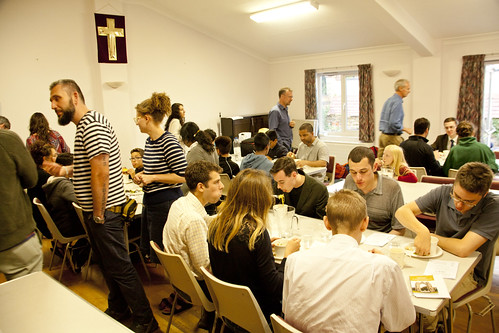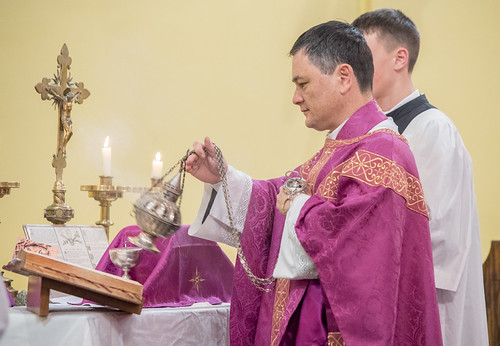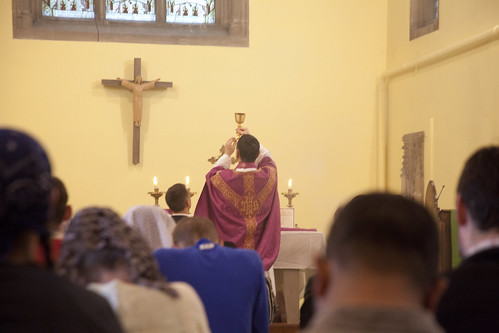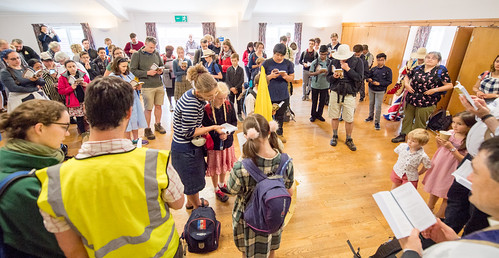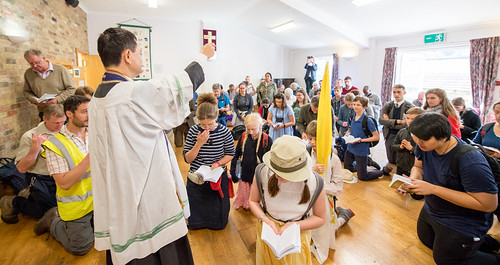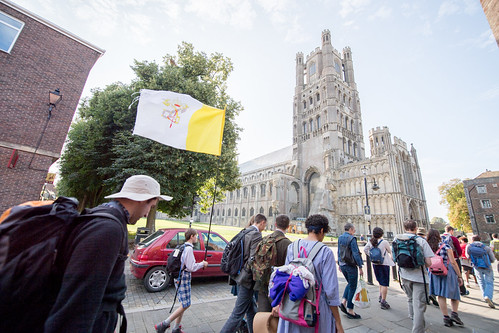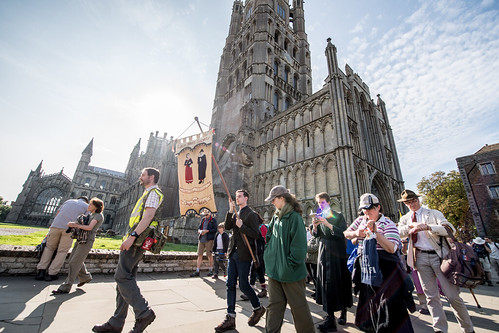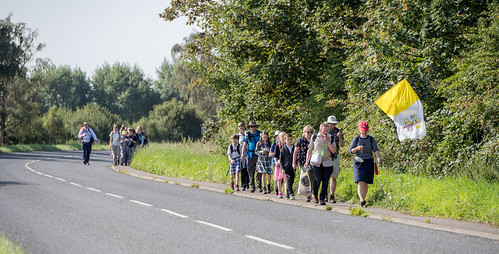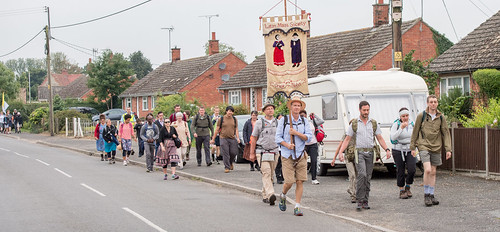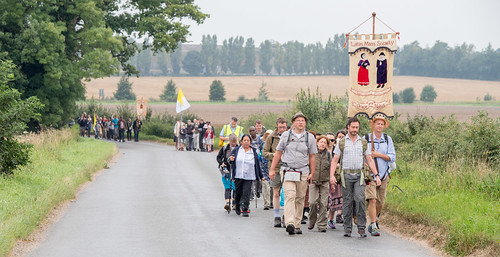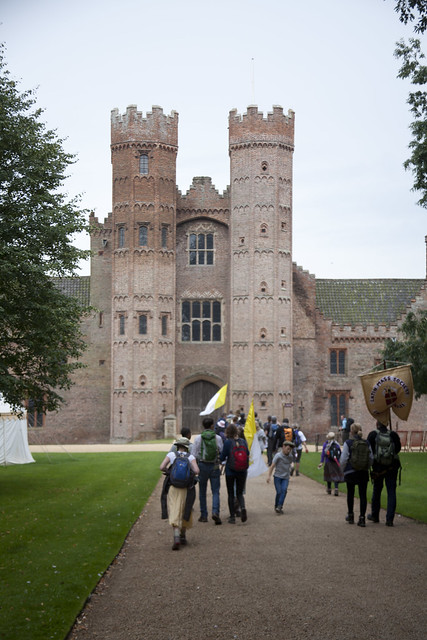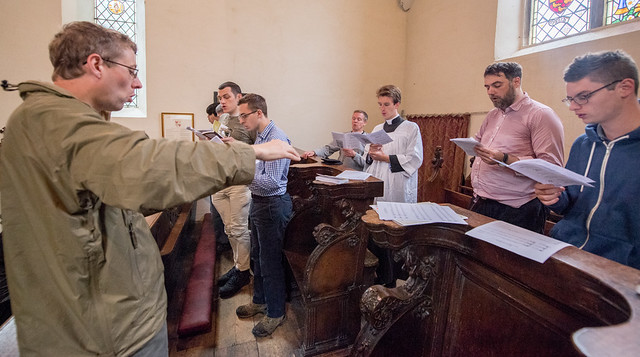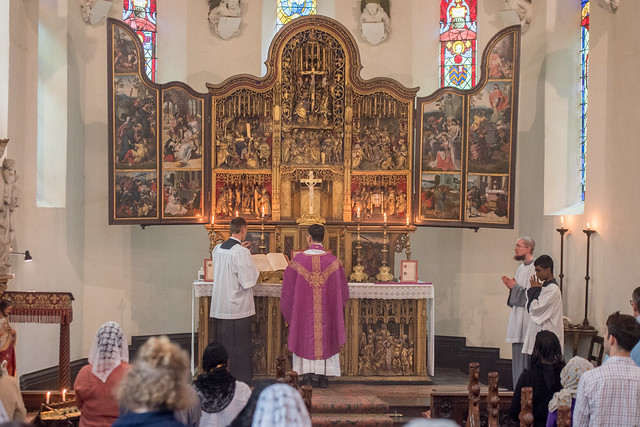Chairman's Blog
Correctio Filialis: a response to some critics
Support the work of the LMS by becoming an 'Anniversary Supporter'.
The mainstream media on the Correctio Filialis
I agreed to be spokesman or media contact for the Correctio Filialis I didn't realise quite was I was letting myself in for. I've now lost count of the number of telephone and email mini-interviews I've done, and I don't have time to keep track on the number of reports online which have resulted from these.
This could have been a nightmare, but it's not at all. The journalists have been polite and professional. (Associated Press was a teeny bit naughty breaking the media embargo, but it was only by an hour or two.) And all things considered, we are getting amazingly favourable coverage in Catholic and non-Catholic sources.
The New York Times and the Daily Mail, which both picked up the AP material, took the fairly obvious (to them) line that the Pope was being nice to people and that we want to take the sweeties away from the children - or something like that. (A Guardian comment piece says the same thing.) They paid us the incomparable compliment, however, of reporting us, and indeed of doing so at some length and with a degree of prominence, and the articles are hardly hatchet-jobs. The story of the 'Pope vs. conservative critics' has become part of the media narrative about Pope Francis, so it goes down without obstruction. But critical distance between the liberal media and what we might call the 'reforming agenda' in the Church seems to have opened up nevertheless, thanks no doubt to stories such as about Professor Seifert losing his job over criticisms Amoris laetitia. The liberals in the Church are less and less recognisable as such; the conservatives are clearly now the underdogs.
So now we have a story from CNN which is really very balanced, even favourable to us.
In the meantime, Catholic outlets seem to be divided between those who want to report the story in an objective or favourable way, who find themselves doing multiple stories as the news develops (Catholic Herald here and here, Lifesite here, here, here, etc.), and those who wish to play it down or ignore it completely. The problem for the latter is that it is too late: the mainstream media have already picked it up.
It's no fun ignoring something on one's own. And it doesn't have the desired effect, either.
Support the work of the LMS by becoming an 'Anniversary Supporter'.
Reactions to the Filial Correction
Please note that academics and pastors who wish to are invited to apply to join the official list of signatories through a button on the website here (scroll down).
Everyone can sign the petition of support here.
I've been watching the reaction to the Filial Correction on the media - though I've certainly not read all of it - and the Catholic reaction in favour and against are both very interesting.
The reaction in favour has been overwhelming. At the time of writing the petition in support of the document has over 4,000 names, despite being very much an afterthought and not being integrated into the publicity.
But more important has been the tone of responses, and the range of people who have responded positively. Over the last forty years and more the 'conservative' end of the theological debate has been riven by disagreement about how bad things really are, and how strongly criticisms should be expressed. It sometimes seemed that every initiative by a conservative group would be denounced, simultaneously but by different people, as being excessively aggressive and as making too many concessions to liberalism: as being too strong and too weak. Differences of opinion on exactly how to protest about problems are inevitable, but these disagreements have at times become so violent as to cripple conservatives' ability to act at all.
This is not happening at all with the Correctio Filialis. Not everyone thinks that the wording and the general approach is perfect - of course not - but we are not being attacked by fellow-conservatives and traditionalists. I think this is extremely significant. A consensus has formed among those serious about the Faith that things have reached a point where such action is at least reasonable, and derives from sincere love of the Church and reasonably well-informed thinking about the theological issues. For a vast number of conservative Catholics, the response has been relief: someone at last has said it.
So who is opposing us? I think the long-established 'liberal' side of the argument on theological issues would be content to ignore us. There is no reference to the Catholic story of the day, on prominent display in the Daily Mail, the New York Times, The Times, and various other places, on the PrayTell blog at the time of writing. A journalist from The Tablet spoke to me today, but I fancy the result will simply be a short news item.
No, it is the strange new phenomenon of hyper-ultramontanist Francis-partizans who have taken up the fight. They are helpfully gathered together in a National Catholic Reporter article. They seem very worked up, and have developed a sort of all-purpose invective, which can be applied to any topic: the people they don't like are 'hypocrites', aren't very grand and well-connected, and are few in number. As we philosophers say, an argument that can prove too much, ends up proving nothing at all.
Search that article from end to end and you won't find a single objection to the content of the document. And here's something else. The writer of the article, Joshua J. McElwee, not only has no reaction to these spluttering accusations, in his article, from a supporter of the Correctio Filialis, but in preparing it he never took the first step in trying to get one. I know this because that step would be writing to me, at the email address included in the press release as the media contact. I have spent all of today and much of yesterday on the phone to or writing emails to journalists: the Associated Press, LifeSite, radio journalists from Poland, journalists in Rome, CNN, The Tablet, you name it. But from Joshua J. McElwee I have not heard a peep. He didn't want to hear the other side of the story. He just wanted to put together a few quotes from a tiny clique of chums. This isn't journalism, this is the Party Line.
On the one hand, they are desperate to make little of us: they don't want to quote us, they think we are insignificant, it's just a few people, move along there, there's nothing to see. On the other hand, they can't actually bear to look away. They can't stop tweeting and writing about it. We represent a totally insignificant threat that is absolutely terrifying and must be crushed at all costs.
To be fair to them, I think they may have an insight into the affair which the conventional liberals lack. I rather think we really are more significant than our numbers and our academic standing might suggest. So much so, in fact, that the Vatican itself has gone to the trouble of blocking access to the Correction Filialis website from Vatican computers, which appears rather symbolic, if not ludicrous.
| In that enormous silence, tiny and unafraid, | |
| Comes up along a winding road the noise of the Crusade... |
Support the work of the LMS by becoming an 'Anniversary Supporter'.
With profound grief... A filial correction.
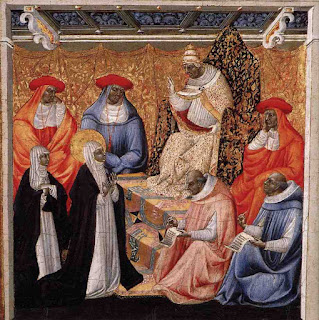 |
| St Catherine of Siena before Pope Gregory XI |
With profound grief, but moved by fidelity to our Lord Jesus Christ, by love for the Church and for the papacy, and by filial devotion toward yourself, we are compelled to address a correction to Your Holiness on account of the propagation of heresies effected by the apostolic exhortation Amoris laetitia and by other words, deeds and omissions of Your Holiness.
We are permitted to issue this correction by natural law, by the law of Christ, and by the law of the Church, which three things Your Holiness has been appointed by divine providence to guard.
By natural law: for as subjects have by nature a duty to obey their superiors in all lawful things, so they have a right to be governed according to law, and therefore to insist, where need be, that their superiors so govern.
The document is signed by 62 people, Catholic academics and pastors, from 20 countries. It expresses, in technical theological language, the concern that, while Amoris laetitia itself may be open to an interpretation in line with the previous teaching of the Church, various informal indications, which appear to be favoured by Pope Francis himself, point to an interpretation not in line with that teaching.
Either the new view is wrong, or the old one is. There has in fact been no attempt to promulgate the new view magisterially - that is from the Holy Father himself, clearly, and in an authoritative format, such as a formal document - since Amoris laetitia itself. It would seem, in any case, that such an attempt could not be successful, in the sense of creating an obligation on Catholics to assent to this new view, because the old view expressed the Ordinary Magisterium, based on Scripture, and this teaching cannot be changed. In short, it seems to me that the new view which has been suggested and insinuated is incompatible with the Faith.
That does not mean that the Pope is a heretic. There is a wide gap between appearing to favour a view which is objectively contrary to the faith, and being a heretic, one part of which is the knowledge and intentions of the person concerned, and another part of which is the judgement of that person by a competent superior. We cannot ascertain the former, and as for the latter, in the law of the Church, the Pope has no superior. Judgment of the Pope's culpability or personal state has absolutely no place in this project.
What we can do, and are doing, is simply pointing out that the view being insinuated is not the Catholic faith, as we are able to understand it. In such a case, where the stakes are so high, it seems to us an obligation to discharge our consciences to the Holy Father himself, privately, as we did a month and more ago. And then, in the absence of a response, to manifest our concerns to the Catholic public at large.
This does not mean that I think I am or the petitioners as a group are infallible. It just means that I feel I must manifest my view. It is for those with teaching authority to address our concerns, to make clear what is unclear, and to show us, if necessary, where we have gone wrong. Any document like this, within the Church, is designed to stimulate the exercise of the magisterium, not to undermine or replace it.
Posted on the Feast of Our Lady of Ransom, and of Walsingham.
St Catherine of Siena, pray for us.
Support the work of the LMS by becoming an 'Anniversary Supporter'.
LMS Pilgrimage to Glastonbury
This year I was able to get to the Latin Mass Society's longstanding pilgrimage to Glastonbury, one of the ancient holy places of Europe. It generally takes place on the first Saturday of September.
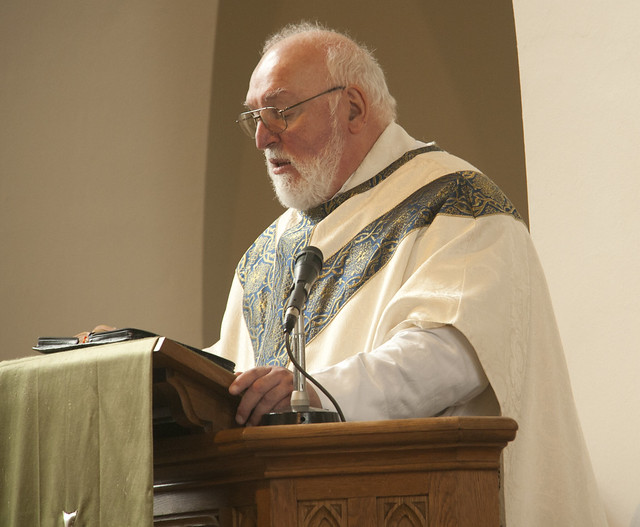
A Sung Mass was celebrated by Fr Philip Thomas. By coincidence, it has been announced that another priest of Clifton who has done much for the Traditional Mass, Fr Bede Rowe, will be taking over as Parish Priest of Glastonbury.
Support the work of the LMS by becoming an 'Anniversary Supporter'.
Cardinal Sarah's proposed reform of the Traditional Mass
New Council elected by Una Voce International
I attended the 'closed' or business meeting of Una Voce International - the Foederatio Internationalis Una Voce, FIUV - which takes place every two years and elects (or re-elects) the organisation's officers and Council.
Like most voluntary organisations, the FIUV is never overwhelmed by people wanting to take on positions of responsibility. We are very grateful to Felipe Alanis Suarez (from Mexico) for agreeing to do another term as President, and to Monika Rheinsmitt for carrying on as Treasurer. I agreed to be Secretary, a post I have not undertaken before. (I was Treasurer 2013-'15.)
Apart from the usual and, often in their most interesting aspects, confidential contact with the Curia, and the development of the organisation (such as the admission of new members), the big news of this year's General Assembly is the publication of the history of the FIUV by Leo Darroch, from the beginning (1965) up to the resignation of Michael Davies as President in 2002. It is a substantial work and I'll be writing reviews of it in various formats soon: buy it from the LMS bookshop here.
Here is the full list of Officers an pd Council members of the FIUVl
President: Felipe Alanís Suárez (Una Voce México)
President d'Honneur: Jacques Dhaussy (Una Voce France)
Vice Presidents: Patrick Banken (Una Voce France)
Secretary: Joseph Shaw (Latin Mass Society, England and Wales)
Councillors:
Oleg-Michael Martynov (Una Voce Russia)
Jarosław Syrkiewicz (Una Voce Polonia)
Derik Castillo (Una Voce México)
Andris Amolins (Una Voce Latvija)
Fabio Marino (Una Voce Italia)
Support the work of the LMS by becoming an 'Anniversary Supporter'.
Photos from Walsingham, Part 3
After Mass in the Reconciliation Chapel, we walked in procession down the Holy Mile, the last mile to the site of the Medieval shrine, destroyed at the Reformation.
The remains of Walsingham Priory
Venerating the processional statue
On Monday morning, some of us returned to the Catholic Shrine for a Sung Mass in the tiny Slipper Chapel.
Support the work of the LMS by becoming an 'Anniversary Supporter'.
Photos from Walsingham, Part 2
On Saturday, we stop at the ruins of Castle Acre Priory, and say the De Profundis.
On Saturday evening, at our evening stop of Great Massingham, we were visited by Bishop Alan Hopes, who is of course the lcoal Ordinary: Bishop of East Anglia.
Off again, for the last day's walk: Sunday. Now with a processional statue of Our Lady of Walsingham.
Mass in the Reconciliation Chapel at the Catholic Shrine: High Mass, a Votive of Our Lady with the Asperges. 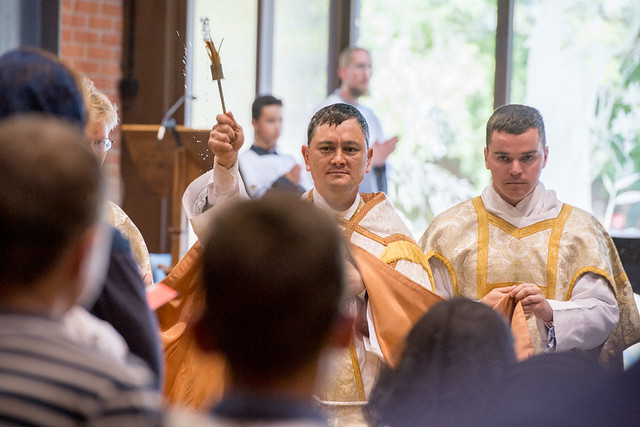
Fr Rowe was assisted by Fr Henry Wisenant (deacon; a priest of the diocese) and Br Ambrose (subdeacon, of the Cardiff Oratory). 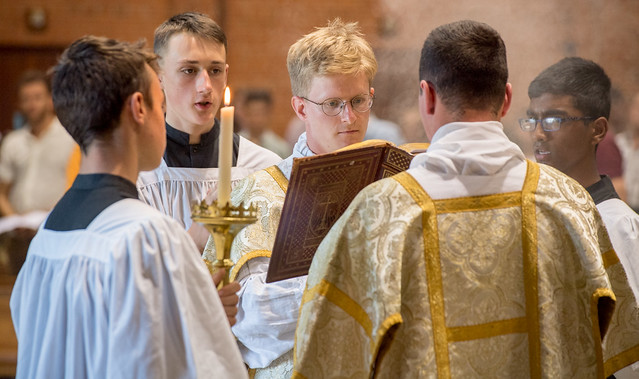
Support the work of the LMS by becoming an 'Anniversary Supporter'.
Photos from Walsingham: Part 1
Most of these photos are by John Aron, our brilliant photographer; a couple are by me.
The pilgrimage was brilliant, and the numbers were our highest ever. I'm going to let the photos do the talking.
Gathering on Thursday evening: dinner.
Mass early on Friday morning, celebrated by Fr Michael Rowe
Fr Michael Rowe our Chaplain gives the Blessing of Pilgrims
Visit to Ely Cathedral
Walking out of Ely
Early start on Saturday, to get to Oxburgh for Mass
Oxburgh Hall, a recusant Catholic house
Support the work of the LMS by becoming an 'Anniversary Supporter'.

